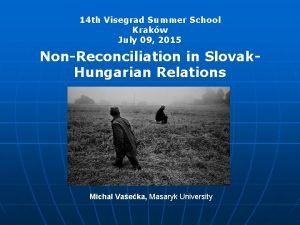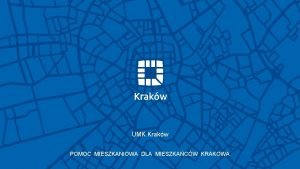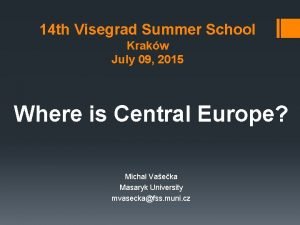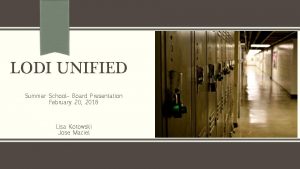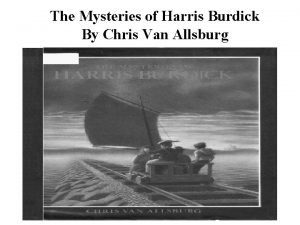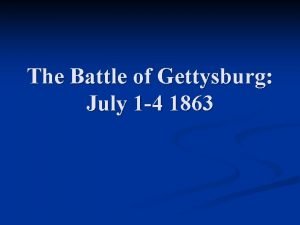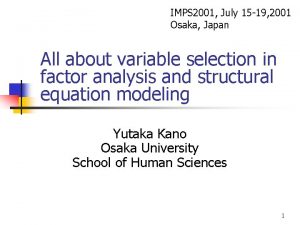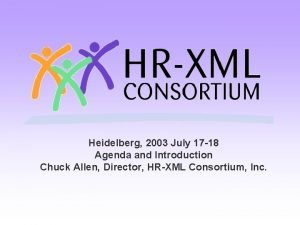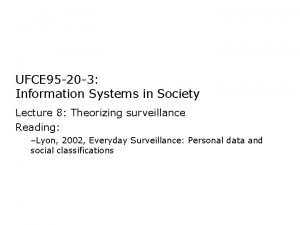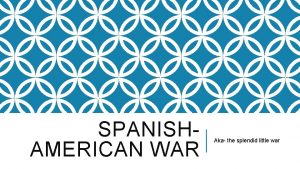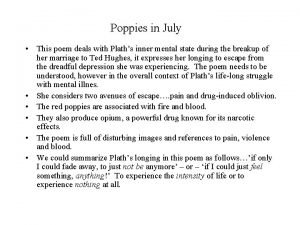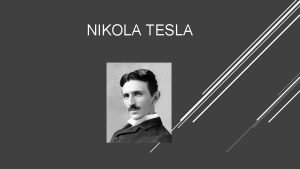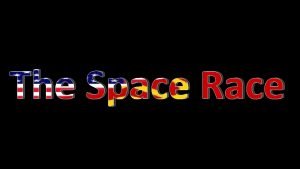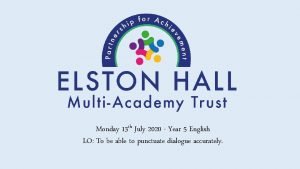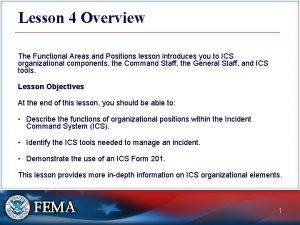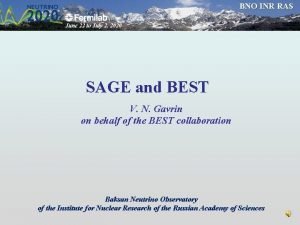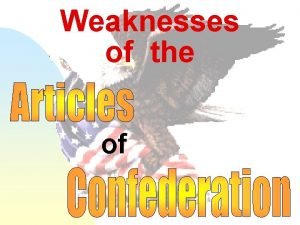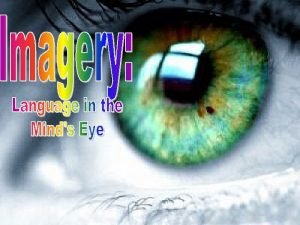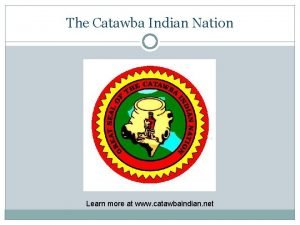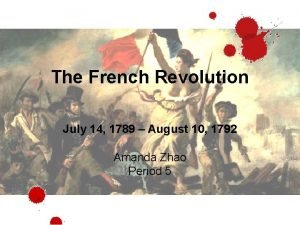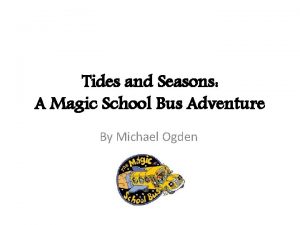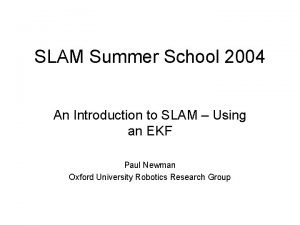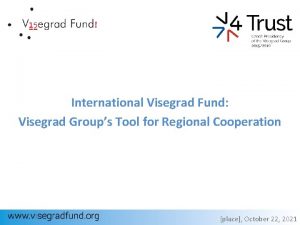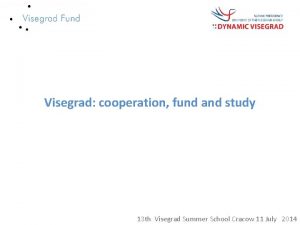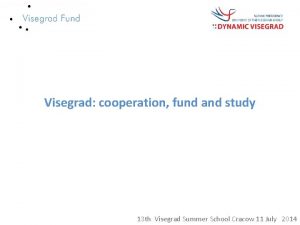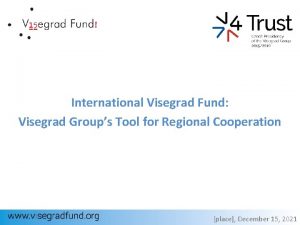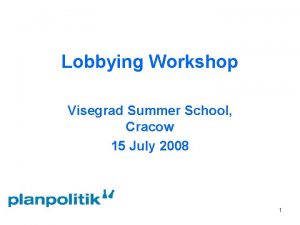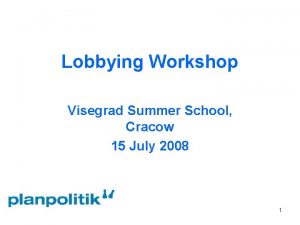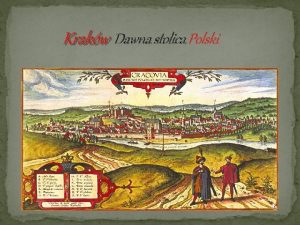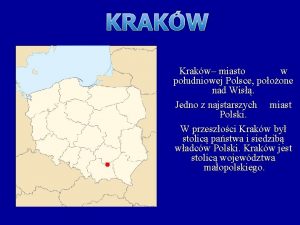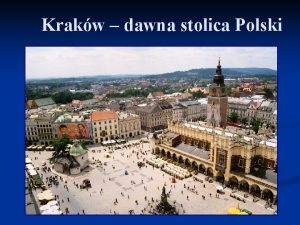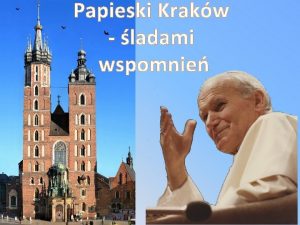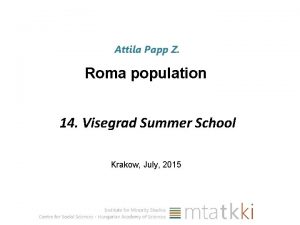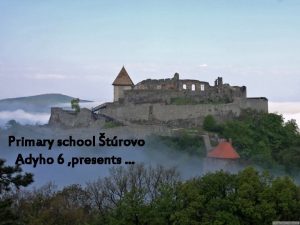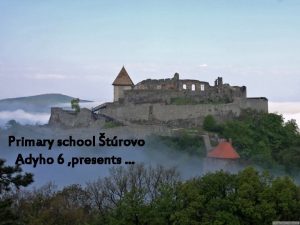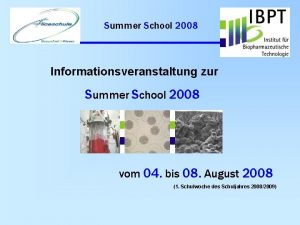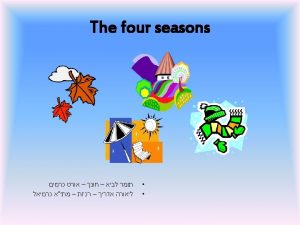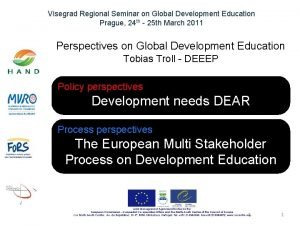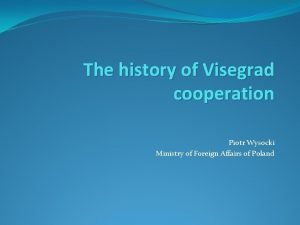14 th Visegrad Summer School Krakw July 09












































- Slides: 44

14 th Visegrad Summer School Kraków July 09, 2015 Non-Reconciliation in Slovak. Hungarian Relations Michal Vašečka, Masaryk University

Reconciliation between Slovakia and Hungary? n n Both Slovakia and Hungary systematically portray and construct each other as an enemy and they serve as an ideal “other” in a so-called national discourse. More than two decades after political and societal changes of 1989 previous conflicts between Hungary and Slovakia are far from being reconciled they are just settled.

Inter-ethnic relations between Slovaks and Hungarians in the past n n Slovaks and Hungarians (or rather groups that were to become Slovaks and Hungarians) lived in one country for almost 1000 years. Common identity until 19 th century (Ungarus identity) disappeared in Slovakia in 20 st century, Magyars, however, incorporated it completely. Emancipation processes of 19 th turned newly constructed nations against each other. Slovak national mythology became oriented mostly against Magyars. 20 th century brought numerous injustices on both sides. Countries became „ideal others“ at the moment.

Reconciliation between Slovakia and Hungary n Historical resentments, though, persist on both sides and although there were numerous institutional and noninstitutional, formal and informal, grassroot as well as professional attempts to reach reconciliation between Slovakia and Hungary - it never materialize itself into consistent movement or bilateral institution.

What is reconciliation? n Reconciliation (The reestablishment of friendly relations) n Why „Re“- Origin: The Sacrament of Reconciliation „The Sacrament of Reconciliation is a common name used for the Sacrament of Confession. Whereas "Confession" stresses the action of the believer in the sacrament, "Reconciliation" stresses the action of God, who uses the sacrament to reconcile us to Himself by restoring sanctifying grace in our souls. “ n Conciliation (The action of bringing peace and harmony; the action of ending strife) n Rapprochement (reestablishment of cordial relations between countries)

Reconciliation - practical definition n Reconciliation is a development in which political, economic, and societal reforms/ developments lead to the transformation of a society emerging from conflict into one at peace with itself, its various ethnicities and minorities, as well as its neighbors.

Reconciliation Measures n n n Truth- and Reconciliation commissions History commissions Schoolbook commissions Youth exchange programs Civil society enhancement programs Non-formal reconciliation or reconciliatory policies

Factors hindering reconciliation n n n n Lack of internal reflection on history Dominance of nationalist narratives Non-pluralist mass media Non-civic / un-civic / anti-civic civil societies Externally developed textbooks that lack acceptance by teachers and the public Internal and external controversies on economical, political, and historical issues External pressures External re-education

Factors contributing to reconciliation n n Open internal political debates and controversies on the past Textbooks, teacher training, and societal discussions on the past as a combined process Pluralist mass media Civic civil societies Internal and external economical and political balance

What are structural reasons of nonreconciliation in Central Europe? n n 1. Inability of Central European countries to change their ethnicized character and to move towards postnational era. 2. The way how „core“ society is being defined and consequently failures in minority policies. 3. Attitudes toward each other influenced by various types of forgetting and historical amnesia. 4. Failures and misuse of an education system in changes of children´s value orientation toward mutual acceptance and toward reconciliation of mutually problematic past.

Ethnicised character of Central European countries n Nations defined culturaly and ethnicaly n Similarity of national myths n n n n Myth Myth about about a territory suffering unjust treatment civilization mission military bravery resurrection and revival ethnic origin and antiquity common origin

Changes of identity in late modernity Consequences of globalization on cultural identities: n 1. Erosion of national identities and creation of global post-modernity; n 2. Strengthening of national identities in their essentialist form; n 3. Strengthening of particular identities; n 4. Strengthening of universalistic identities; n 5. Creation of hybrid identities. n

Identities and institutional set-up Discrepancy between multiple identities of post-modern era and 19 th century type of nation state in Central European countries rises. n Citizenship policies in Central European countries are subject of ethnicization and ius sanguini principles. n Clash with modern understanding of citizenship and disputes between countries are just a result of specific self-definitions of „imaginative communities“ n

Central European core solidarity Concept of Jeffrey Alexander and his distinction of the “core” and “out” group within a society. n „Nations“ were established by groups, whose members share certain characteristics and features, on which their solidarity was structured. n Alexander suggests that each core-group needs out-group. n Within Central Europe „out“ groups are being defined ethnically and remnants of the „core“ solidarity is lasting until these days. n

Core and out groups - ideal type People with permanent residence Citizens of the country

Core and out groups in EU - division of the out group People with permanent residence Citizens of the country Ethnic Slovaks/ Hungarians

Attitudes influenced by various types of collective forgetting n n n 1. Repressive Erasure 2. Prescriptive Forgetting 3. Forgetting that is Constitutive in the Formation of a New Identity 4. Structural Amnesia 5. Forgetting as Annulment 6. Forgetting as Humiliated Silence

Opposite Views of Hungarians and Slovaks as a result of forgetting n n Attitudes toward each other influenced by various types of forgetting and historical amnesia. Since 1989 Slovaks and Hungarians display opposite views over various historical events and common history of Slovaks and Hungarians and these trends have not been changing significantly during years of transformation.

Bratislava (Prešporok/ Preßburg/ Pozsony) n n n n Capital of Hungary City of Habsburg re-catholization City of the Hungarian Parliament and of the Hungarian bourgeois revolution City of a Slovak emancipation process Wilson city Capital of Slovakia, Slovak socialist republic, and lastly capital of Slovakia Bratislava/ Prešporok/ Preßburg/ Pozsony

Bratislava

Memory of grievances and consequently lack of empathy n Both communities tend to remember or to forget very different historical events and consequently they view differently particular policies of a state toward minorities.

Different and selective remembering: „Events, which had negative influence on Slovak. Hungarian relations“ Magyarization Treaty of Trianon I. Vienna Arbitral Beneš-decrees 20 40 60 Hungarians living in Southern Slovakia Slovaks from ethnic homogenous regions Slovaks living in Southern Slovakia Bačová (1992), 100. %

Slovakia: What is your opinion on a demand to write names in Hungarian mother tongue?

Slovakia: What is your view over a demand of ethnic Hungarians for dual language signs?

What hinders reconciliation between Slovakia and Hungary? 1. Living in the past…

What hinders reconciliation between Slovakia and Hungary? 2. Ethicized views of history

What hinders reconciliation between Slovakia and Hungary? 3. Symbolic fight over „ownership“ of places

What hinders reconciliation between Slovakia and Hungary? 4. Symbolic fight over public space

What hinders reconciliation between Slovakia and Hungary? 5. Negative stereotypes about each other Old Magyars /History textbook – 1 st Czechoslovak republic; 1921/ „Old Hungarians” (Honfoglaló magyarok)

What hinders reconciliation between Slovakia and Hungary? 5. Negative stereotypes about each other Portraying of Slovaks - „Tótok”. History of Portraying of Slovaks - „Tótok”. Hungary; 1928 „Slovak” (Tótok)

What hinders reconciliation between Slovakia and Hungary? 6. Over-ethnicized textbooks as a main reason behind failures of the education system n n Education system and the way how national history is portrayed plays an important role of stereotypes reproduction. History text books are crucial in a process of identification of children with their respective country and with a nation state. History text books always portray “beginnings of national history” and during 20 th century they proved to be based more upon national myths than historical knowledge in most of countries of Central Europe. History books are the most important element of reproduction of national myths.

Cultural superiority… it always can be proved… n n The way how Slovak nation has been portrayed since 1918 helped to create his exclusivist shape - most importantly through distancing from others (Germans, Hungarians). Creation of cultural and civilization superiority over Hungarians within history textbooks is a good example of “boundary mechanism“.

„Civilized“ Slavs and „nomadic“ Hungarians n n Textbooks of the 1 st Czechoslovak republic described Hungarians, for instance, as “nomadic nation, of yellow race, and of a wild morality. They accepted Christianity and therefore they escape destiny of their predecessors - Huns and Avars”. Textbooks repeatedly prove how nomadic Hungarians were learning from local Slavs how to harvest the land, how to utilize various agricultural products, how to use various tools necessary in order to overcome nomadic style of life. Authors of various textbooks repeatedly mentioned how “Hungarian language has been enriched by Slavic words, especially by those connected to cultural life”. Authors of textbooks define also reasons why Slavic population has not been “hungarinized” - “Slovaks were better educated than Hungarians and they became teachers of Hungarians in agriculture and crafts”.

Germans were ok… n n Being consistent with this “civilization” line, Germans however, have being portrayed by Czechoslovak history textbooks as those who “were more developed in culture than Slavs, Goths actually introduced Slavs into the circles of European culture…” Unlike in case of Hungarians, German superiority has been immediately explained: “Germans were for more than 500 years under the direct influence of Roman Empire and therefore they were soon enough settled among Roman inhabitants”.

Slovak fascist state n n n History textbooks of a fascist Slovak state continued with previously mentioned tendencies in portraying others, though with more openness and brutality. Hungary and Slovakia, although being officially allies under the auspices of Nazi Germany, were portraying the other as enemy states. Slovak history textbooks therefore were bringing pictures of Hungarians as wild nomads and pagans and tried to prove cultural and civilization superiority of Slovaks in every aspect of social and cultural life: “Hungarians were brutal nomads, they avoided hard work, they loved festives, eating lot of meat, drinking sour milk, and they were shaving their heads”.

History textbooks during regime of real socialism n n History textbooks during the communist regime focused on other than ethnical aspect of formation of national identities of people and they highlighted progressive role of people (in a German sense of “Volk”) as a subject of “national history”. According to communist historiography “people” in Slovakia (Czechoslovakia) had to fight on two fronts - against both class and national oppressions. Slavic people have been consequently portrayed as “progress holders” - those who “civilized Hungarians and prepare them for feudalism”. Textbooks, however, were not always written according to norms of internationalism: “At the end of 9 th century alien nation arrived into the Pannonia from South-Russian prairies. Theirs killing arrows and their curvy swords killed everybody who they met”. Importantly - communist textbooks continued also to highlight importance of Slavic language for contemporary Hungarian language - many Slovaks remember that, according to linguistic research, as many as 13 % of words in Hungarian language come from Slavic languages, especially from Slovak.

Representation of cultural superiority n n Representations of cultural superiority of Slavs over Hungarians draw its legitimacy from civilization ethnocentric classifications. That was, however, not exceptional approach - focus on labor skills was understood as a primary sign of being civilized - Greek picture of “Persian barbarians” or “Asian aliens” has been part of European historical memory since ancient times. History textbooks published after 1989 continued previous tendencies, although with much less expressive language. But - no matter how expressive language has been used, Slovak children have been learning for several generations about their civilization superiority.

Failures of the education system n Although young Slovaks are strengthening their particular and universalistic identities nowadays instead of national ones, attitudes toward Hungarians do not change.

Attitudes of young people toward others n Public opinion pool conducted in 2008 on a sample of 14 years old pupils of primary schools (final grade) in Slovakia showed that in some aspects these young people are even less tolerant toward Hungarians living in Slovakia than their parents

Slovakia as a country of Slovaks… n n n More than respondents from other surveys conducted in Slovakia during last 20 years, young people from the CVEK survey supported statement that “Slovakia is predominantly country of Slovaks and that is how it should stay ” (63, 3 %). Majority of young Slovak respondents responded in surprising way on a question: “What comes to your mind when you hear word Hungarian? ”. Most of answers on this open question were negative and were reflecting historical deprivation and oppression of Slovaks. Young Slovaks were usually repeating what they have heard with the educational process and what they have a chance to hear in Slovak media.

Over-ethnization of the public sphere as a structural reason for non-reconciliation n Need of transfer from ethno-cultural to legal-political definition of a nation in both Slovakia and Hungary. Need to support particular and universalistic identities that are in place. Need to define basis of belonging together - constitutional patriotism or at least some „Leitkultur“…

Conclusions n n Reconciliation process does not occur as far as Hungarian Slovak relations are concerned yet. There are many signs suggesting that conflict is just settled and for far too many in both Slovakia and Hungary this is exactly the state of affair they want to maintain. The processes of reconciliation will not take place unless ethnically defined nations of Central Europe will not change themselves into political ones, unless there will be overreaching demand for non-ethnicized policies and politics, and unless serious attempts to change education system will not take place. Especially history textbooks should display common history of Slovaks and Hungarians and portray the others without ethnocentrism and feelings of superiority of one over another.

Political elites as Agents of Change?

Common cultural space as a chance ? Alexander Petrovič Alexander Karl Henrik Grosschmied de Mára Országh Pál
 Visegrad summer school
Visegrad summer school Gmk umk
Gmk umk Krakw
Krakw Pacto de visegrad
Pacto de visegrad Voće sa slovom č i ć
Voće sa slovom č i ć Summer school lodi unified
Summer school lodi unified Crescenta valley high school graduation 2021
Crescenta valley high school graduation 2021 Assignment in spanish
Assignment in spanish Harris burdick another place another time
Harris burdick another place another time Archie smith boy wonder picture
Archie smith boy wonder picture July 1-4 1863
July 1-4 1863 Tender definition
Tender definition Astronomy picture of the day 11 july 2001
Astronomy picture of the day 11 july 2001 2001 july 15
2001 july 15 2003 july 17
2003 july 17 July 30 2009 nasa
July 30 2009 nasa Sources nso july frenchhowell neill technology...
Sources nso july frenchhowell neill technology... What is the significance of july 4 1776 brainpop
What is the significance of july 4 1776 brainpop Poppies in july aoifes notes
Poppies in july aoifes notes Miss cuba receives an invitation
Miss cuba receives an invitation Poppies in july poem
Poppies in july poem Gdje se rodio nikola tesla
Gdje se rodio nikola tesla Ctdssmap payment schedule july 2021
Ctdssmap payment schedule july 2021 Sergei korolev
Sergei korolev 6th july 1988
6th july 1988 Monday 13th july
Monday 13th july On july 18 2001 a train carrying hazardous chemicals
On july 18 2001 a train carrying hazardous chemicals July 4 sermon
July 4 sermon June too soon july stand by
June too soon july stand by July 2 1937 amelia earhart
July 2 1937 amelia earhart June 22 to july 22
June 22 to july 22 July 12 1776
July 12 1776 Sensory language definition
Sensory language definition Super saturday tribal bingo july 4
Super saturday tribal bingo july 4 March april june july august
March april june july august July 14 1789
July 14 1789 Malaga in july
Malaga in july Leaf yeast
Leaf yeast July 26 1953
July 26 1953 July 16 1776
July 16 1776 Ivc summer classes for high school students
Ivc summer classes for high school students Ducksters
Ducksters Slam summer school
Slam summer school La sapienza summer school
La sapienza summer school Event management summer school
Event management summer school
